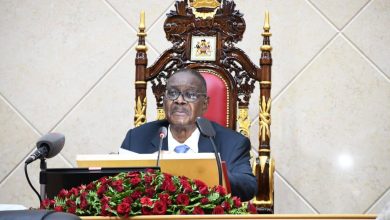Market-responsive tariffs can save Escom, others
My heart bled last week when I heard Electricity Supply Corporation of Malawi (Escom) Limited chief executive officer Kamkwamba Kumwenda lamenting about the financial situation the power utility is sailing through.
During a joint press conference with its twin Electricity Generation Company (Egenco) to update the nation on the status of power generation and supply in Lilongwe last week, he said Escom is struggling to square a K52 billion debt owed to independent power producers (IPPs) due to losses it is incurring by selling electricity to domestic customers at below cost. In fact, Egenco is owed in excess of K30 billion.
Kumwenda stated that IPPs quote Escom in dollars, a situation that complicated its situation as prior to the 44 percent devaluation of the kwacha the conversion rate was K840 to a dollar but now, with the official exchange rate at K1 751 the cost kind of doubled for the power supplier. For instance, a $2 million invoice from IPPs two or three years ago would see Escom pay K1.7 billion, but it is now paying K3.4 billion for the same.
In other words, the 44 percent devaluation of the kwacha in November 2023 pushed the cost of supplying electricity yet Ministry of Energy at the time suspended implementation of Escom’s decision to effect a tariff adjustment.
Escom’s financial woes could get more complicated with the Mozambique-Malawi Power Interconnector set to provide an initial 50 megawatts (MW) if the tariffs remain the same. Here is the case: Escom will be purchasing a kilowatt hour of electricity at $0.12 (about K210.12) but selling the same at $0.09 (about K157.59. It surely doesn’t make business sense, but it is what it is!
When the Ministry of Energy suspended implementation of a 40.92 percent electricity tariff adjustment in November 2023 until April 1 2024 or thereabouts, line minister Ibrahim Matola said the freeze was meant to cushion Malawian, especially domestic consumers, from the impact of devaluation as electricity was one key factor in production.
It is clear that the ministry’s position only made political, but not business sense. I am saying this because the input cost was supposed to match output if Escom or indeed any institution was to perform efficiently.
The Escom scenario reminded me of the situation in the petroleum industry where Malawi Energy Authority (Mera) is now owing fuel importers, National Oil Company of Malawi and Petroleum Importers Limited close to K1 trillion in import losses. This led to the depletion of the Price Stabilisation Fund (PSF) in the fuel price build up designed to cushion such losses but has not served the purpose because prices are now politically manipulated and not determined by market forces.
Procrastination in reviewing fuel pump prices coupled with corruption perceptions in the procurement chain has not helped Mera and indeed the nation.
Economics and politics complement each other and, as they say, good economics make good politics. In other words, where politics overrides economics, the consequences have often been disastrous because reality has always caught up with those attempting to suppress the real situation.
What we learn from the cases of electricity and fuel is that there is a limit and indeed a price for every decision made. Populist decisions to gain political mileage through false picture of the real situation are not the best way to manage economics, they are, in fact a recipe for a full-blown economic crisis.
Today it is Escom and fuel importers dying a painful slow death induced by political populism decisions but the big picture is the negative impact that this is creating in the economy, washing away all the gains and threatening achievement of targets in Malawi 2063, the country’s long-term development strategy.
Instead of suppressing the real cost, a phased implementation would do the trick better.
Numbers do not lie, but liars use numbers, so they say. My parting shot is that the country is sitting on a ticking bomb ready to explode by prioritising politicking over economic realities.



